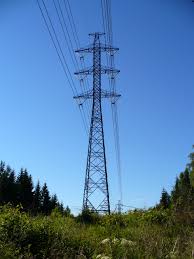PLN is eyeing a lead role in the 2,500 remote villages electrification program, a project initially aimed at the private sector.
The Energy and Mineral Resources Ministry is working on a ministerial regulation that would allow private companies to set up off-grid power plant projects in remote villages, 2,376 of which are located in Papua and West Papua.
Private investors taking part in the project will focus on developing renewable energy based electricity, providing grid capacity for mostly small power plants. They are allowed to sell the electricity directly to residents without having to go through PLN.
However, despite its past failures to provide electricity to remote areas on account of lack of infrastructure, high construction costs and limited capital, the company aims to complete program in three years.
PLN corporate planning director Nicke Widyawati said the company was assessing the locations to be interconnected with PLN’s existing networks (on-grid) and locations that would remain separated (off-grid) due to lack of infrastructure.
“We have started assessing the locations in Papua. Once we receive a green light from the government through the impending regulation, we will immediately put the packages out to tender. The concepts will be similar to independent power producers (IPP),” she said.
Based on the assessment, PLN will buy the electricity produced in villages that may be included in the existing network. Meanwhile, those that PLN finds completely separated from existing networks will be handed over to the government to be auctioned.
PLN will not be constructing the power plants exclusively because the government expects more private sector involvement in the project. “This is why we’re trying to make these packages as enticing as possible for investors,” she said.
The ministry’s Director General for Electricity Jarman said the impending regulation would also allow provincial administration-owned companies to construct their owned grids and sell electricity directly to locals. He cited provincial administration-owned firm Tuah Sekata, which has provided electricity for Pelalawan in Riau for the past decade.
“This scheme will allow for swift development to increase our electrification ratio and procure electricity for non-electrified villages, this is why we need to take advantage of all sources. If PLN can do it alone, then that is good. However, don’t just plan it, do it,” Jarman said.

